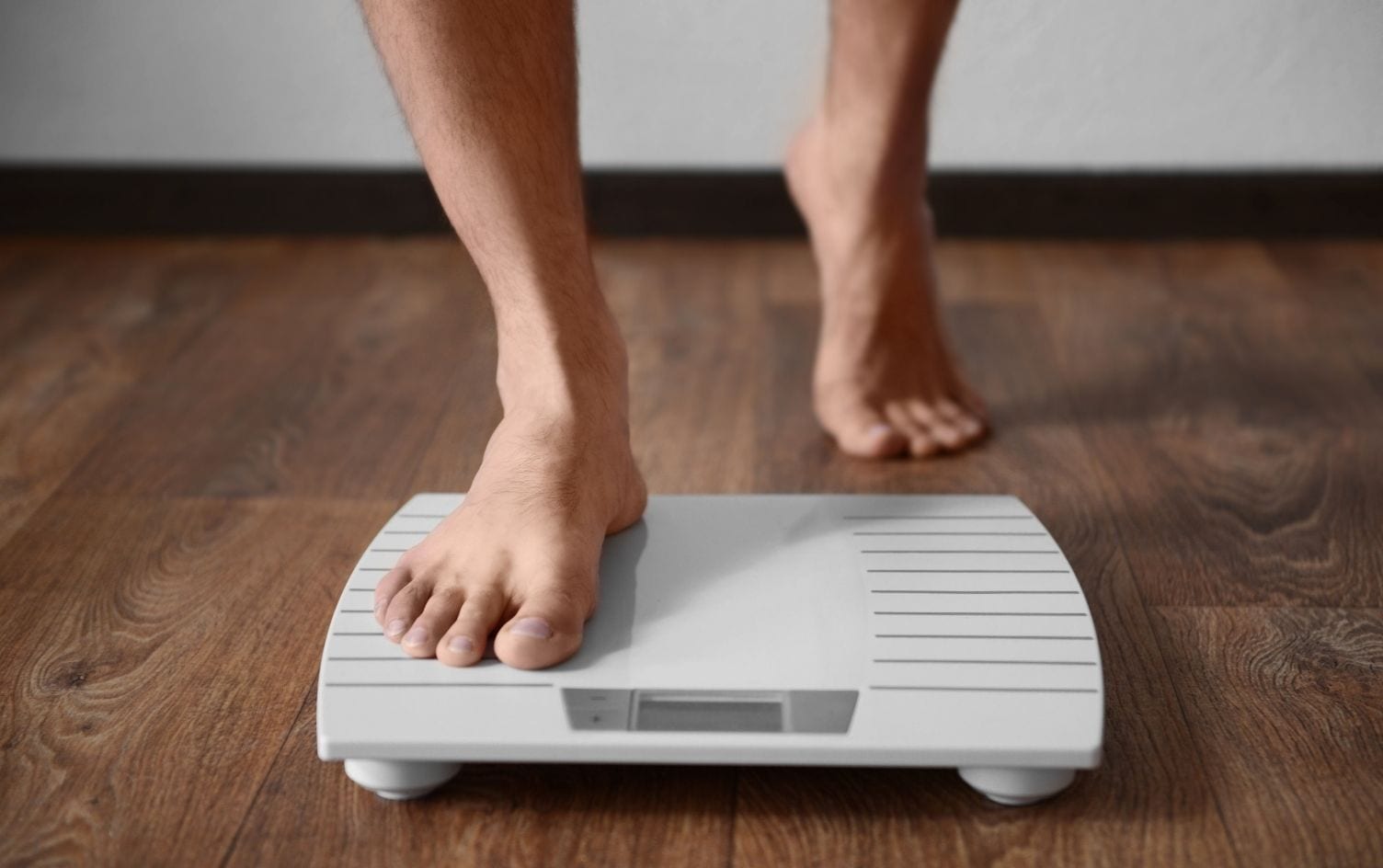Gaining weight is often perceived as a negative concept and is avoided at all costs. This is because of the stigma body fat has against the perception of an ideal “healthy” and “athletic” body, plus potential negative effects to health and athletic performance.
However, there are times when seeing a higher number on the scale is positive because that increase is meaningful, purposeful and positively affecting your health.
LOW BMI OR BODY FAT PERCENTAGE
If your height-to-weight ratio equals an underweight body mass index (BMI) score or you have a low body fat percentage regardless of BMI, gaining weight should be a priority. Being in either of these categories increases risks of hormone disruption, nutrient deficiencies, injury, fatigue and, if you’re an athlete, overtraining.
Aim to make small increases to daily calorie intake over time, such as adding an extra snack, a portion of grains or protein, or a bit of healthful fat like avocado or nut butter until your weight comes up to a healthy metric.
POST-VACATION OR HOLIDAY
You went away for a week, exercised a little less and indulged a little more. Naturally, you should gain a little weight. This is normal and comes off in a week or so as you resume your normal habits.
If you feel you really overdid it or got off track for a week or more, yet the scale does not show an increase, you’re likely not eating enough on a regular basis. When your body is in starvation mode, it efficiently and effectively utilizes any opportunity of overconsumption to maintain normal function. Take this as a sign to increase your daily calorie intake and seek assistance from a registered dietitian to help determine the correct nutrition needs for your activity level.
PREGNANCY
It may sound obvious, but research shows 1/3 of all pregnant women desire to lose or maintain weight during pregnancy. While nine months of weight gain can be an overwhelming concept, gaining during this time, even for the most active women, is needed to support proper fetal growth and maternal health.
Insufficient weight gain during this time increases risk of miscarriage, low birth weight, stunted uterine growth and premature birth. Growth charts have been developed based on research connecting weight gain during this time to healthy pregnancy outcomes to provide women with a general guideline to follow. To find the right approach for you, discuss any weight gain and activity concerns with your prenatal care team.
BEFORE A RACE OR COMPETITION
This one’s for the athletes reading this article. While it might sound contradictory to gain weight right before a big event, weighing in a pound or two heavier the morning of your race or competition could mean you’re on track for an optimal performance. Many athletes see benefits to a carb load leading up to an important competition or race, and if you’ve done it correctly (48 hours of consuming 10–12g carbohydrate per kilogram of body weight), your body has retained extra water. With every gram of carbohydrate consumed, the body needs 4 grams of water to metabolize the energy-boosting macronutrient. Come event morning, that weight increase indicates your body has a good amount of that extra water weight — and therefore extra carbohydrates — on deck ready to supply your working body with energy. This water weight is only temporary and will be gone by the next day, so don’t fret it.
THE BOTTOM LINE
In any circumstance, the number on the scale is just one metric of health and should not be obsessed over. It is important to know the difference between temporary weight increases such as after eating a large salty meal and long term, gradual increases, along with what weight is healthy for your body and goals. If your weight is creeping up, but so is your strength, endurance, sleep quality, mood … well then, you’re doing just fine. If you are concerned with weight or body composition, schedule a consultation with a registered dietitian to help determine how to best meet your goals while giving your body the energy and nutrients it needs.
Make progress every day while you work on mini fitness and nutrition goals, like walking more steps or learning to track macros. Go to “Plans” in the MyFitnessPal app for daily coaching and easy-to-follow tasks to keep you motivated.




